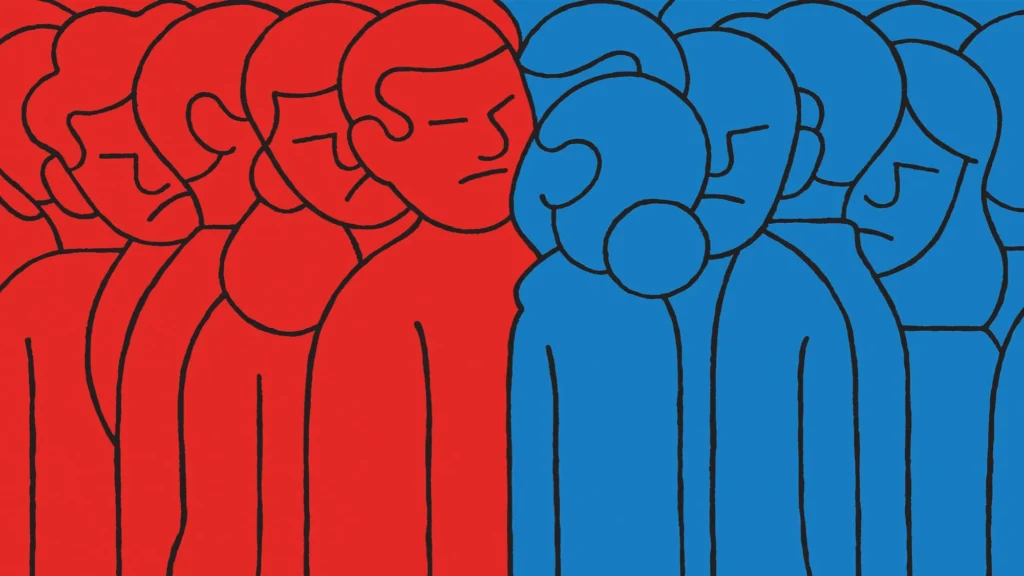Political polarization and partisanship
This topic examines the growing divide between political parties and ideologies, including the role of media and social media in fueling polarization, and the potential effects on democracy and governance.
As political parties and ideologies grow more divided, the ability to compromise also collaborate has become increasingly challenging. This essay will explore the widening gap between political parties and ideologies. The impact of media also social media on polarization, and the potential effects on democracy and governance.

Political polarization refers to the growing divide between political parties and ideologies. As parties also ideologies become more ideologically divided, the ability to compromise and work together becomes increasingly difficult.
This has led to gridlock in government and a breakdown in the ability to make policy decisions. Political polarization, while not new, has intensified in recent years, with both major political parties becoming more ideologically homogeneous.
Partisanship refers to the loyalty and support of political parties. Partisan loyalty has deepened recently, as many voters strongly identify with their political party also perceive the opposing party as a threat to their values and beliefs.
Partisanship has become increasingly important in political discourse, with many politicians emphasizing partisan loyalty over compromise and cooperation.
Media and social media play a contentious role in fueling polarization in political debates. They’ve become segmented, with people seeking out information that aligns with their beliefs, leading to echo chambers. This intensifies political polarization, making individuals more entrenched in their views and less open to opposing perspectives.
Social media has played a particularly significant role in fueling political polarization. Platforms like Facebook and Twitter are crucial sources of political news, connecting individuals with like-minded others.
This has created filter bubbles, where individuals encounter information that confirms their beliefs and values, while opposing viewpoints are excluded.
The result has been an increase in the intensity of political polarization. Individuals becoming more entrenched in their beliefs and less willing to consider alternative perspectives.
The effects of political polarization and partisanship on democracy also governance are potentially significant. As political parties and ideologies become more ideologically divided, the ability to compromise also work together becomes increasingly difficult.
This has led to gridlock in government and a breakdown in the ability to make policy decisions. The result has been a decline in public trust in government. As citizens become increasingly frustrated with the inability of the government to address the challenges facing the nation.
The effects of political polarization and partisanship on democracy and governance are potentially significant. As political parties and ideologies become more ideologically divided, the ability to compromise and work together becomes increasingly difficult.
This has led to gridlock in government and a breakdown in the ability to make policy decisions. As a result, public trust in government has declined due to citizens’ frustration with the government’s inability to tackle national challenges.
There are a number of potential solutions to political polarization also partisanship. One approach is to increase opportunities for bipartisan cooperation and compromise. This might involve the creation of bipartisan commissions or the adoption of rules that require bipartisanship in certain policy areas.
Another approach is to increase the diversity of media sources and reduce the influence of filter bubbles. This might involve increasing funding for public broadcasting or creating incentives for media outlets to provide balanced and objective coverage. 카지노사이트
